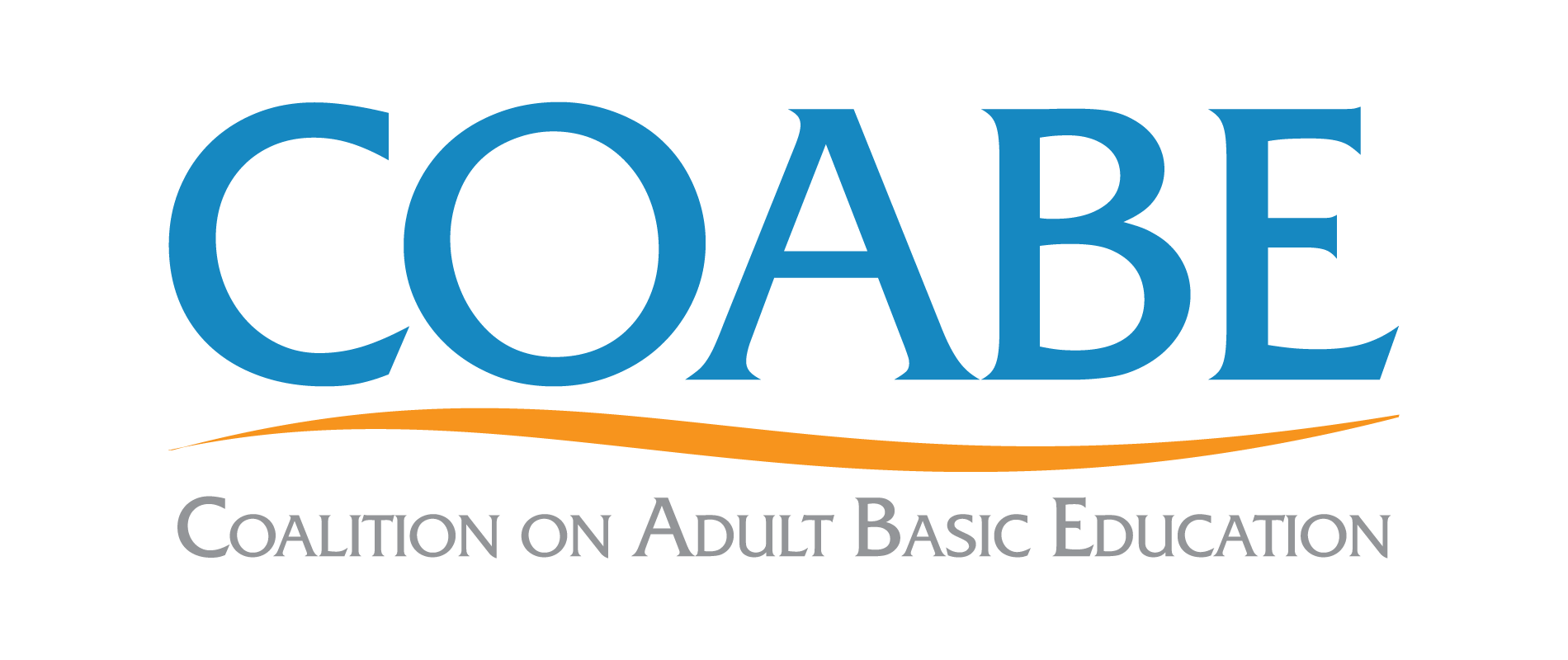Video, Webinar, and Presentation Archives
Videos - Interviews
Young Adults' Job Skills and the Modern Workplace
Anthony Carnevale discusses U.S. PIAAC 2012 results on C-SPAN's Washington Journal. Mr. Carnavale says that, while in the past, generally only upper management needed critical thinking, problem-solving, and other higher level skills, the modern economy requires these skills from most workers. (October 15, 2013)
Education and Labor Markets
Jack Buckley and Ellen Scully-Russ talk about education statistics and labor markets around the world and in the U.S. They speak about U.S. labor and education statistics, workplace skills and employee demographics, and how American adults performed on PIAAC 2012 compared to their peers in other countries. (October 25, 2013)
Webinars
Time to Reskill Webinar
The Time to Reskill webinar was held by the U.S. Department of Education and the American Institutes for Research on March 13, 2014. It was an opportunity to learn about the PIAAC data and the OECD's special report on America's low-skilled population, Time for the U.S. to Reskill?, as well as to engage in a focused discussion about the issues facing adult education.
PIAAC, What Now?
On November 2, 2013, presenters at the 2013 U.S. Conference on Adult Literacy spoke about the importance of the PIAAC study. They discussed tools, resources, tactics, and strategies for programs interested in using the PIAAC study as a way to advance their public policy agenda and to raise awareness.
How Boosting Adult Educational Skills Can Grow the Middle Class
November 12, 2013: A recorded event by the Center for American Progress in joint partnership with OECD, discussing PIAAC results and implications. More information about the event can be found here.
The Skills of Immigrants: What PIAAC Tells Us
On February 12, 2015, Migration Policy Institute (MPI) authors present findings from their report, Through an Immigrant Lens: PIAAC Assessment of the Competencies of Adults in the United States, based on U.S. PIAAC 2012 data. They discuss what their analysis reveals about the literacy of the first- and second-generation immigrant population in the United States, the U.S. education and workforce training system, and the implications for the future of the U.S. labor market and its role in the global economy.
U.S. Results Presentations
Skills Outlook 2015: Youth, Skills and Employability
Andreas Schleicher of OECD presented on the new OECD Skills Outlook 2015 on youth at the OECD Washington's Expert Briefing in May 2015. For more information, please click here.
Federal Response to PIAAC Findings
Heidi Silver-Pacuilla of the Office of Career, Technical, and Adult Education (OCTAE) and Meredith Larson of the Institute of Education Sciences (IES) presented about the federal response to PIAAC findings. These slides were prepared for the 2014 Adult Education Research Conference (AERC) annual meeting.
Low-Skilled Adults in the U.S.
Dan McGrath, Director of the International Assessment Branch at NCES, presented detailed findings from PIAAC about the low-skilled adult population in the United States. These slides were prepared for the 2014 State Directors of Adult Education annual meeting.
Time for the U.S. to Reskill? What the Survey of Adult Skills Says
Andreas Schleicher, Special Advisor on Education Policy at the OECD, identifies some key lessons for the U.S. from PIAAC about the strategic objectives and directions which should form a frame for policy development, including policy on adult learning and schooling.
Where do U.S. Adults' Skills Rank Internationally?
This slide presentation describes what the Survey of Adult Skills results say and offers additional insight into the U.S. results.
International Results Presentations
Skills on the Move: Migrants in the Survey of Adult Skills
Andreas Schleicher, Director for Education & Skills at OECD, hosted a Q&A webinar on November 9, 2018 about the new report Skills on the Move: Migrants in the Survey of Adult Skills. Drawing on data from PIAAC, this report provides new evidence on differences in migrants’ characteristics and contexts and considers how these relate to the skills migrants possess.
Learning, Literacy, and the Lifecycle
William Thorne, Senior Analyst at the OECD, discusses what the PIAAC can tell us about lifelong learning.
Skilled for Life? Key findings from the survey of adult skills
Andreas Schleicher, Special Advisor on Education Policy at the OECD, presents initial results from PIAAC and provides insights into how proficiency in literacy and numeracy translates into better economic and social outcomes.
Workers' skills and how they are used at work
This presentation by Glenda Quintini of the OECD looks at the assessment of skills use at work using PIAAC.
Canadian Results Webcast (Archived)
Literacy and Essential Skills stakeholders in Canada are invited to watch a webcast where a summary of Canadian findings are presented by representatives from Employment Skills Development Canada.
2013 ETS/OECD PIAAC Conference Presentations
In November 2013, the OECD and ETS hosted a research conference focused on PIAAC and its implications for academic researchers. Below is a list of presentations from the conference with slides and videos provided. You can also watch these presentations on your smartphone via the "PIAAC Conference 2013" app.
Keynote Address: Better Skills, Better Jobs, Better Lives by Andreas Schleicher, OECD View slides ›
Innovations in PIAAC: How Technology and Methodology Differentiates PIAAC
Matthias von Davier, ETS View slides ›
Jean-Francois Rouet, French Centre National de la Recherche Scientifique View slides ›
Discussant: Mireille Bétrancourt, University of Geneva View slides ›
Estimated Returns to Quality-Adjusted Education: New Evidence from PIAAC
Guido Schwerdt, University of Siegen View slides ›
Discussant: Lei Zhang, Shanghai Jiao Tong University View slides ›
Understanding How Skills are Used at Work
Glenda Quintini, OECD View slides ›
Discussant: Richard Murnane, Harvard University View slides ›
Acquisition and Decline of Literacy Over the Life Course
Rolf K.W. van der Velden, Maastricht University View slides ›
Discussant: Ken Mayhew, Oxford University View slides ›
Using PIAAC Data for Producing Regional Estimates
Kentaro Yamamoto, ETS View slides ›
Discussant: David Kaplan, University of Wisconsin-Madison View slides ›
The Relationship of Problem Solving to Literacy and Numeracy: Insights from PIAAC
Henry Braun, Boston College View slides ›
Discussant: Jan-Eric Gustafsson, University of Gothenburg View slides ›
Concluding Remarks from John Martin, OECD View slides ›
International PIAAC Research Conference Presentations
Spain
The OECD, in collaboration with the Spanish Ministry of Education, Culture and Sport and the Government of the Community of Madrid, organized the 3rd PIAAC International Conference in Madrid, on 6-8 November 2016. The purpose of the 3rd PIAAC International Conference 2016 was to promote the use of PIAAC data to help addressing relevant policy issues.
Netherlands
The second PIAAC International Conference, held on November 22–24, 2015, was organized by the OECD in collaboration with the Research Centre for Education and the Labor Market at Maastricht University and the Dutch ministries of Education, Culture and Science; Social Affairs and Employment; and Economic Affairs. The conference showcased papers on issues such as the deployment of skills in the economy, returns to education and skills, and the influence of workplace training and provided an opportunity for researchers to demonstrate the wide-ranging applications of PIAAC data and for policymakers, other researchers, and various stakeholders to discuss the findings. View papers and presentations ›
Austria
In October 2014, Statistics Austria, in cooperation with the Austrian Federal Ministry of Education and Women's Affairs (BMBF) and the Federal Ministry of Labour, Social Affairs and Consumer Protection (BMASK) of Austria, organized a PIAAC conference to present and discuss further in-depth analyses of PIAAC data with the focus on Austria, although some cross-country studies were also introduced. The studies included exploring the relationship of demographic factors such as gender or age with the PIAAC skills, the impact of skills on the participation in the labor market or on income, the association of formal and informal learning activities and the acquisition of skills, as well as characteristics of the population with low skills. View summaries ›
Germany
In May 2014, a conference on PIAAC was organized by GESIS – Leibniz-Institute for the Social Science in cooperation with the German Federal Ministry of Education and Research (BMBF). Conference sessions addressed key PIAAC results from Germany and neighboring countries, methodological research based on PIAAC, competencies at the work place, competencies and age, differences in competencies within the German Population and PIAAC in the context of other large-scale studies of competencies.
Other PIAAC Presentations
Learn About the Education and Skills Online Tool by OECD
These slides were presented on August 27, 2015 by ETS during a webinar on the Education & Skills Online (ESO). These slides go over what the ESO is, what it does, what it includes, and what you can expect. For more information on the ESO, please visit their webpage.
Using PIAAC's Education and Skills Online to Examine Adults' Skills Locally
Jill Castek, Amy Honisett, and Andrew Pizzolato discuss practical ways to use the Problem Solving in Technology Rich Environments (PS-TRE) assessment, a part of the Programme for the International Assessment of Adult Competencies (PIAAC). Presenters share how they are using this tool with library patrons to better understand adults' skills. Results from the assessment will be used to design library programming to meet their patrons’ digital literacy needs.
PIAAC and Workforce Boards
Dr. Jennifer Hunt from the Treasury Department presented at the National Association of Workforce Boards about what the PIAAC results mean for designing workforce policies and programs.
Problem-Solving in the PIAAC and PISA Surveys
Dr. Art Graesser presented a webinar on the frameworks for assessing problem-solving skills in the OECD`s PIAAC and PISA Surveys, including collaborative problem-solving in PISA 2015.
PISA and PIAAC: Similarities and Differences
Patrick Bussière, co-leader of Canada's PIAAC team, described the similarities and differences in design and purpose between PISA and PIAAC and suggested why it could be of interest to compare the results from the two surveys as we move forward.
Numeracy Achievement Gaps of Low- and High-Performing Adults: An Analysis Within and Across Countries
David Miller, managing director at AIR, gave a presentation at the Adults Learning Mathematics (ALM) conference in July 2018 about the numeracy skills of countries' low- and high-performing adults.















